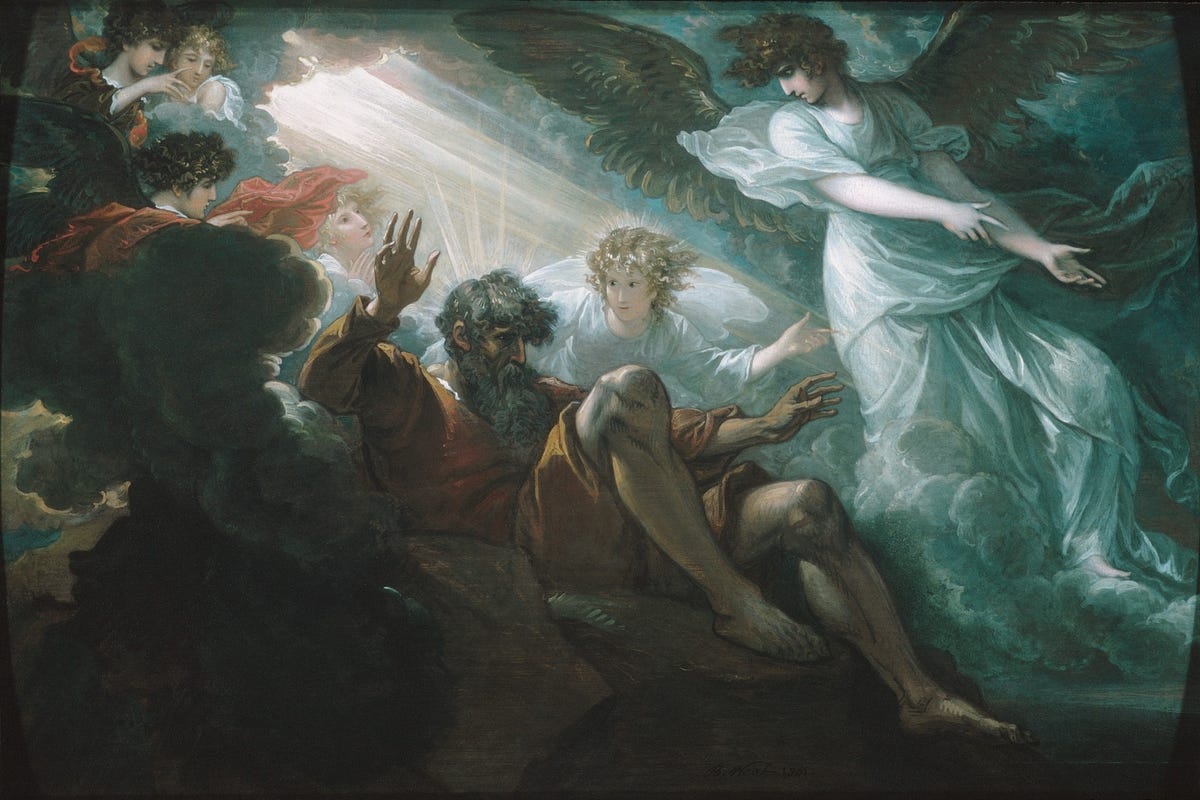C. S. Lewis On Heaven and Hell
Why “the damned” might choose to return to self-imposed destruction — even when presented with a better alternative.
In The Great Divorce, beloved Christian apologist, storyteller, and Oxford and Cambridge literary scholar C. S. Lewis tells the allegorical story of tourists permitted to take a bus ride from Hell to Heaven. The parable is not meant to convey literal truths about the afterlife but rather examine the many reasons why “the damned” might choose to return to self-imposed destruction — even when presented with a better alternative.
The book’s title refers to Heaven and Hell being irreconcilable; they cannot be married. In order to make it into Heaven, Lewis suggests, one must be willing to renounce Hell entirely.
He was responding to Romantic poet William Blake’s The Marriage of Heaven and Hell, which imitated biblical prophecy, John Milton’s Paradise Lost, and Dante’s Divine Comedy, but rejected Christianity’s rigid, black-and-white bifurcation of right and wrong.
“This belief,” Lewis wrote, “I take to be a disastrous error.”
According to Lewis, people miss out on Heaven primarily because they’re unwilling to let go of “even the smallest and most intimate souvenirs of Hell.” Such relics of sin could not be turned “into good,” he warned; they must be rejected wholesale.
In The Problem of Pain, which examines whether suffering disproves the existence of an all-good God, Lewis professed that, while the doctrine of Hell was controversial, he nevertheless affirmed it as biblical. “There is no doctrine which I would more willingly remove from Christianity than this, if it lay in my power,” he confessed. “But it has the full support of Scripture and, specially, of Our Lord’s own words; it has always been held by Christendom; and it has the support of reason.”
“If a game is played,” he added, “it must be possible to lose it.”
As an allegory, however, Divorce presents several unorthodox views of life after death — not the least of which is the notion that souls can make “excursions” into Heaven via buses (see Luke 16:17). “I beg readers to remember that this is a fantasy,” Lewis prefaced his work. Rather than “arouse factual curiosity about the … after-world,” the fabulist wanted his readers to self-reflect and consider what sort of evils they might stubbornly retain, even if at the cost of Heaven.
Here are several examples of those who, in Lewis’s fiction, returned to Hell because they were unwilling to accept Heaven.
The Entitled “Big Man”
The Big Man is firmly persuaded of his own self-righteousness. Upon arriving in Heaven, he demands recognition of “my rights.” To his great dismay, Heaven denies his request.
To make matters worse, he’s greeted by a man who he knows to have been a murderer in his previous life. This man only barely made it in by repenting “at the last moment,” which grates at the Big Man’s sense of justice. “I’m a decent man and if I had my rights I’d have been here long ago,” he snorts.
In stark contrast, the forgiven murderer reveals that he isn’t concerned about himself at all: “I haven’t got my rights, or I should not be here. You will not get yours either. You’ll get something far better.”
But the Man Big refuses the proposal. Storming off, disgusted that Heaven won’t acknowledge his rights, he offers this parting shot: “I’d rather be damned than go along with you. I came here to get my rights, see?”
The Hard-Bitten Man
In The Abolition of Man, Lewis warns, “You cannot go on ‘seeing through’ things for ever. The whole point of seeing through something is to see something through it. … To ‘see through’ all things is the same as not to see.” The Hard-Bitten Man, on the other hand, seems to see straight through Heaven itself!
Cynical and distrusting, this paranoid conspiracy theorist has spent so much time conjecturing about the mysterious “they” out to get him that he cannot possibly enjoy the wonders and bliss of Heaven without suspecting ulterior motives. Even here, he fears that “the people who run the show” are secretly plotting to dupe him.
In an age of increasingly unhinged “truthers,” the Hard-Bitten Man’s constant rants about the Jews, endless wars, and false narratives sound strangely familiar. In the end, he walks away from something demonstrably Good simply because his addled mind cannot shake its perennial pessimism.
Hard-bitten, indeed!
Tragedian




